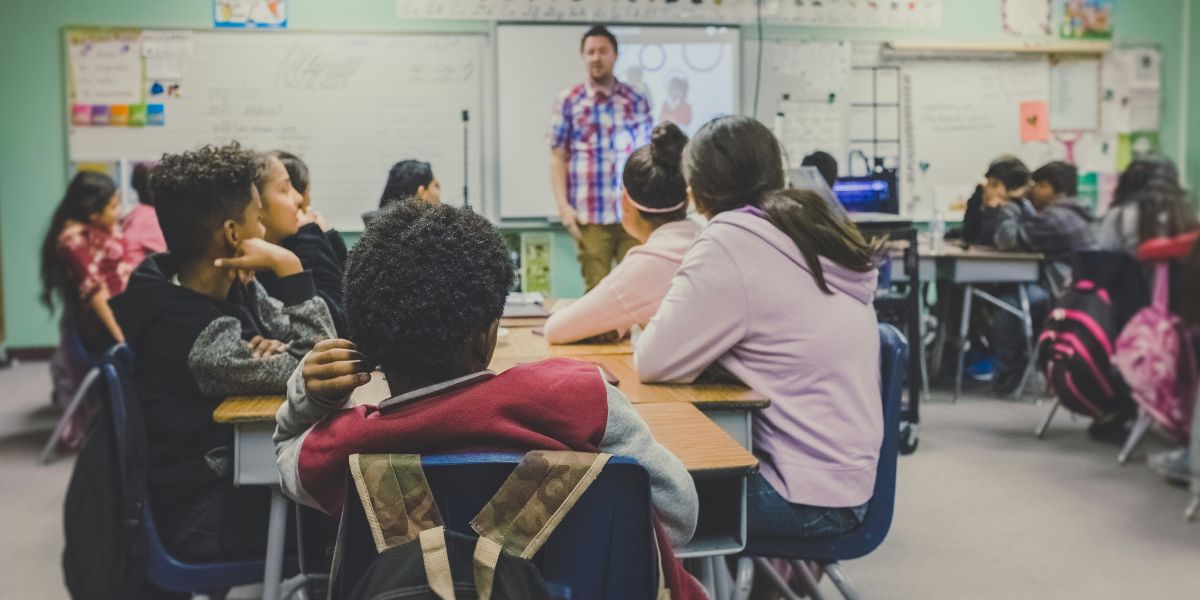By: Amanda Stephan
Veteran EdTech entrepreneur Peter Kraft is reshaping what AI means for learning.
Peter Kraft has built his career on a simple idea: technology should make people think more, not less. Over the past two decades, the New York–born entrepreneur has founded and scaled four education technology companies, collaborating with schools and districts across the United States. His latest venture, Wisdom Circuits, is a significant step forward—a platform designed to demonstrate that artificial intelligence can enhance learning rather than replace it.
Kraft grew up just north of the city, in a family where entrepreneurship was the norm. His father ran a small business, and the lessons stuck. Watching someone build from scratch taught him early what persistence really looks like. He carried that mindset into education technology, where every new idea had to earn its place in the classroom.
In his early career, resources were tight. Kraft remembers driving through the night to meet potential clients, changing into suits in a McDonald’s bathroom before an early morning presentation. “Sometimes resourcefulness matters more than resources,” he says now, half amused, half nostalgic. That scrappy energy would later translate into a clear philosophy: innovation only matters when it helps real people.
Today, the people he’s helping are teachers and students caught in the rush of AI adoption. “The problem is not that students use AI,” Kraft told Authority Magazine. “It’s that they use it to get answers instead of understanding. They’re missing out on the thinking, the struggle, the ‘aha’ moments that make learning stick.”
His response was to design technology that guides, not shortcuts. Wisdom Circuits adapts to classroom material and student interests, helping learners explore concepts through what the company calls Interest Integration™. It’s a patent-pending feature that links lessons to a student’s personal passions — such as basketball, music, robotics, or art — so academic content becomes more relevant and memorable.
Unlike general-purpose chatbots, the system remains aligned with curriculum goals and provides teachers with a real-time view of how their students are engaging. It’s AI built to support teachers rather than replace them.
Kraft’s focus on “guardrails” reflects his belief that responsibility must be engineered into the product from the start. “You can’t tack ethics onto a product later,” he told the magazine. “It has to be there from day one.”
His commitment to responsible innovation extends beyond the U.S. Wisdom Circuits has been in discussions with potential international partners to introduce AI tools that can improve teaching and expand access in regions where schools face limited resources. Kraft says the initiative could become a valuable example of how local education systems can use AI responsibly while staying aligned with their own values and curricula.
The effort fits closely with UNESCO’s call for global collaboration in responsible AI for education, announced earlier this month. Kraft says that alignment isn’t coincidental. His company shares UNESCO’s view that technology should close learning gaps, not widen them.
“Equity has to be part of the conversation,” he often says. “Multilingual access means an English learner can get the same quality support as a native speaker. But without clear rules, the digital divide will grow wider.”
His concern is backed by data. National surveys show nearly half of teachers feel uneasy or even guilty about using AI in class, describing it as “cheating.” Most have had little or no formal training. Kraft interprets that discomfort as a sign of how unprepared the education system still is for these tools. Teachers want guidance, not replacement.
That philosophy runs through every layer of Wisdom Circuits’ design — privacy, transparency, and collaboration. Student data stays with the student and the school. Teachers can see exactly how the AI interacts with their lessons. And parents gain visibility into their children’s learning process.
“If we get this right,” Kraft says, “every student could have access to a personal AI tutor, regardless of zip code or income.” He believes that kind of equitable access can redefine public education, giving teachers new ways to reach struggling students and giving families new confidence in how technology is used.
Looking ahead, Kraft sees education heading toward what he calls “mass personalization,” where learning tools adapt to the pace, interests, and needs of every student. The challenge, he says, will be balancing that flexibility with ethics and privacy. For him, Wisdom Circuits sits right at that intersection — a product that uses AI to make learning more human, not less.
It’s easy to hear the entrepreneur in him, as well as the teacher. Kraft is as interested in the process as in the outcome. He knows education isn’t about perfection; it’s about persistence. The same principle that guided him from late-night road trips to international partnerships still applies today.
“The best classrooms will always be the ones where teachers remain the guides, mentors, and decision-makers,” he says. “AI should work in service of that human connection — never in place of it.”
















